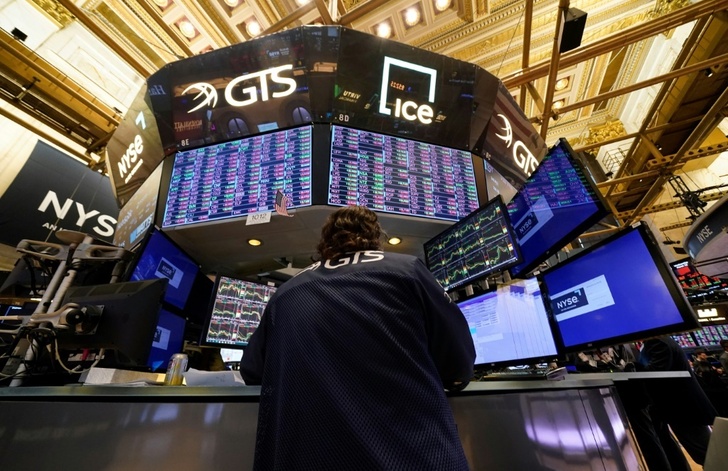Asian stocks were mixed on Friday following a slide on Wall Street driven by renewed fears of banking sector turmoil.
All three major US indices ended the day in the red, while regional bank shares nosedived following another quarter-point hike from the US Federal Reserve.
PacWest plunged 50.6 percent, First Horizon slumped 33.6 percent and Western Alliance lost 38.5 percent.
"The acute phase of bank turmoil may not be over, and policymakers need urgently to recognise that," Krishna Guha, vice chairman at Evercore ISI, told Bloomberg.
US equities futures were making a cautious rebound on Friday morning.
Futures for markets in Europe, which also fell Thursday after the European Central Bank joined the Fed in increasing its main interest rate, were also making an uneven comeback.
Asia, meanwhile, got off to a similarly uneven start on Friday, with Hong Kong up more than one percent at one point, but Shanghai down.
Sydney and Taipei were also up, while Wellington, Jakarta, Singapore, Kuala Lumpur and Manila were down. Tokyo and Seoul were closed for holidays.
- Banking sell-off -
The sell-off in PacWest shares was exacerbated by media reports saying that the bank was considering the possibility of a sale or other capital-raising measures in the wake of the recent collapses of other midsized lenders.
The bank sought to assure investors that it had not "experienced out-of-the-ordinary deposit flows", and that its "cash and available liquidity remains solid", but its shares still tanked.
In addition to PacWest, First Horizon and Western Alliance, other US regional banks to suffer significant drops included KeyCorp, Comerica and Zions.
SPI Asset Management's Stephen Innes described the dynamic as "a highly coordinated and predatory short sellers landscape... with short sellers in battalion fashion moving from one weak link in the daisy chain to the next".
And the trend is likely to stick around, Oanda's Edward Moya said in a note.
"Financial stability concerns are not going away anytime soon and that will continue to fuel calls that we are headed towards a recession that will be much more hard hitting than the mild one some are expecting," he wrote.
"Selling financials is an easy trade as interest rates are too high and will probably remain there thanks to the Fed, which will also continue to drive financial stability concerns," he continued, adding that "more banks are at risk".
Oil prices, meanwhile, appear to have stabilised but are still in a hole after falling sharply in recent days on expectations of weaker demand owing to an economic slowdown.
- Key figures around 0245 GMT -
Hong Kong - Hang Seng Index: UP 0.3 percent at 20,014.91
Shanghai - Composite: DOWN 0.7 percent at 3,326.50
Tokyo - Nikkei 225: Closed for holiday
Euro/dollar: UP at $1.1032 from $1.1017 on Thursday
Pound/dollar: UP at $1.2588 from $1.2572
Dollar/yen: DOWN at 134.12 yen from 134.28 yen
Euro/pound: UP at 87.65 pence from 87.59 pence
West Texas Intermediate: UP 0.3 percent at $68.76 per barrel
Brent North Sea crude: UP 0.3 percent at $72.68 per barrel
New York - Dow: DOWN 0.9 percent at 33,127.74 points (close)
London - FTSE 100: DOWN 1.1 percent at 7,702.64 (close)
smw/dva
© Agence France-Presse
Your content is great. However, if any of the content contained herein violates any rights of yours, including those of copyright, please contact us immediately by e-mail at media[@]kissrpr.com.
Source: Story.KISSPR.com

